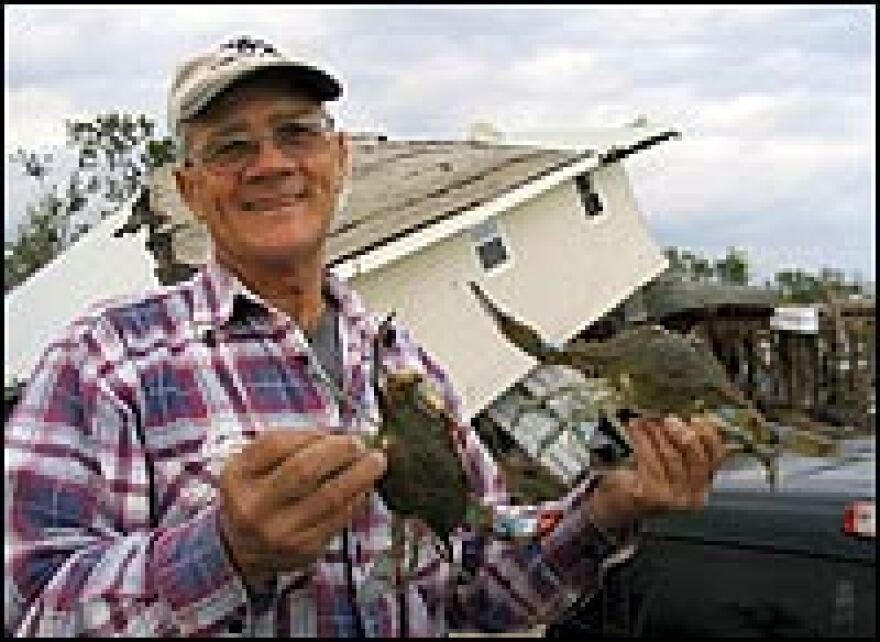

Of all the groups in the micro-melting pot of South Louisiana hit by Hurricane Katrina, it's hard to find a more close-knit community than the Islenos. The descendants of Spanish-speaking Canary Islanders who settled St. Bernard Parish more than 200 years ago are now struggling to restore a community that was dispersed by Katrina's winds and floods.
Drive deep into St. Bernard Parish, and you notice the names on the mailboxes: Nunez, Marrero, Estopinal, Rodriguez, Gonzales, Perez. Two-thirds of the parish's 70,000 residents are Islenos.
Like the population of French Cajuns farther west, Islenos came to Louisiana when it was a European colony. They stayed, and today they're a cultural island.
The French get all the attention in South Louisiana. But the Islenos -- literally, Islanders -- have just as rich a history and culture. The colonial government of New Spain brought some 3,000 of them here from the Canary Islands between 1778 and 1783, to colonize the wild swamplands of St. Bernard Parish and serve as a frontier militia against British encroachment.
For the next two centuries, they survived hurricanes and epidemics, and became expert shrimpers, crabbers, oystermen, muskrat trappers and bootleggers.
Now there's almost nothing left of the oldest Isleno communities.
Katrina's 20-foot storm surge and high winds destroyed nearly every structure. The hurricane tore new lakes in the marsh. Truck bumpers and boat sterns poke out of the dark waters of Bayou Terre aux Boeufs. Dead marsh grass hangs on everything, giving the appearance of the palmetto huts the Islenos built when they first arrived.
The family of Irvan Perez, an Isleno singer and woodcarver, grew up on Delacroix Island. After Hurricane Betsy in 1965, they moved farther up the parish where they thought they'd be safe.
But then Katrina put five feet of water in their homes. The extended Perez family now lives in FEMA trailers in a state park six hours away. And there are few signs that the battered economy of St. Bernard Parish will call them back anytime soon. Making things less certain for the Isleno culture are the parish's disappearing wetlands, which are central to the Isleno identity.
It will take time, but the Islenos say they're coming back. Some will rebuild, away from the water. Some young people will scatter. But, as Irvan Perez says: "This is home. Where else would we go?"
Copyright 2022 NPR. To see more, visit https://www.npr.org.



